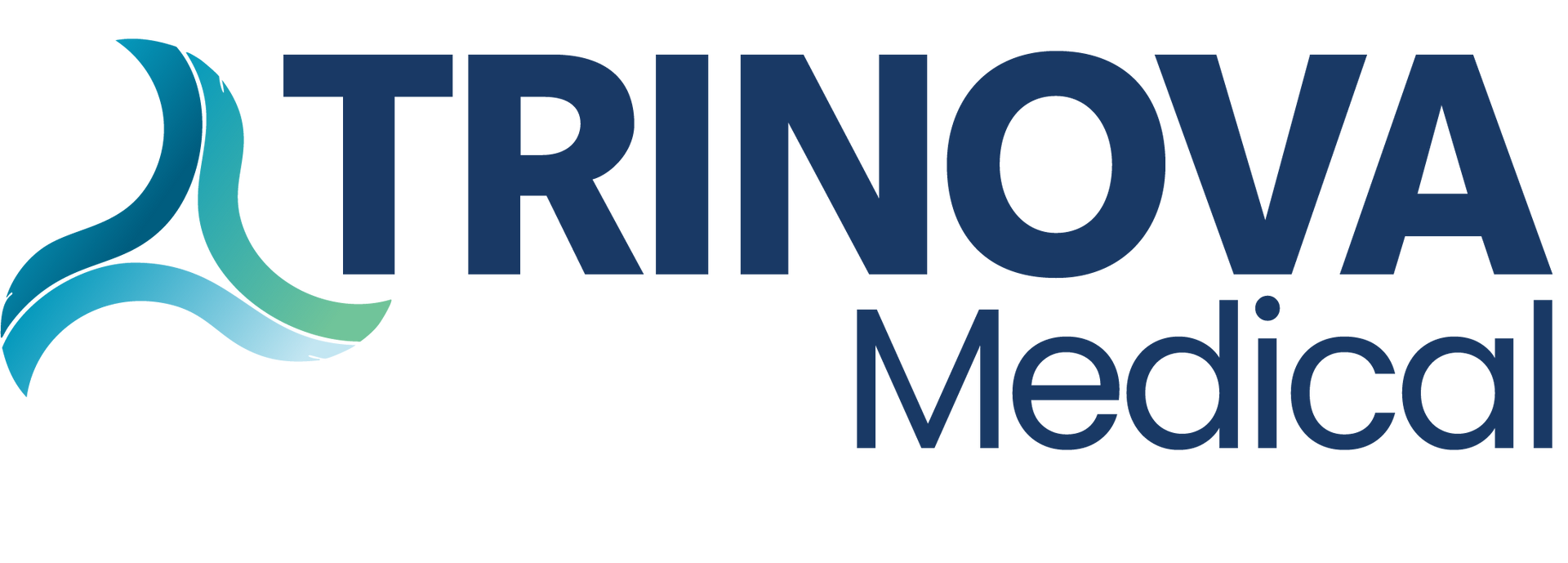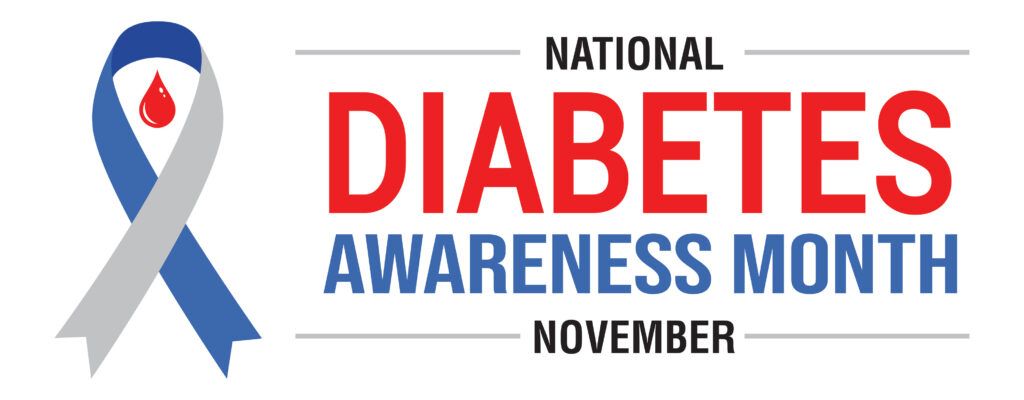News & Articles

By Trinova Medical
•
October 29, 2025
You check your Medicare statement and see a charge for "Chronic Care Management" on a day you weren't in the office. What's that about? Great question—and one we hear often. This charge represents the comprehensive, coordinated care your team at Trinova Medical provides every single month to keep you healthy between appointments. Let us explain how it works. What Is Chronic Care Management? If you're managing two or more chronic conditions like diabetes, high blood pressure, heart disease, or arthritis, Chronic Care Management (CCM) is ongoing support your care team provides between your regular office visits. It's covered by Medicare and happens over the phone, through messages, or behind the scenes as your team coordinates your care. At Trinova Medical, CCM is the foundation of how we deliver quality care to our patients. It's not an add-on service—it's how we ensure you receive comprehensive, coordinated healthcare that addresses all your needs, not just what we can cover during office visits. Why the Charge Shows a Day You Weren't There Here's the key thing to understand: CCM is billed once per month, but the care happens throughout the entire month. The date on your statement is simply when the monthly service was processed—not when the care occurred. Throughout that month, your care team was likely: Reviewing your medications and checking for interactions Coordinating prescription refills Following up on lab results Updating your care plan Taking your calls with questions between appointments Communicating with your specialists Checking in after hospital visits All of this requires at least 20 minutes per month, which is when Medicare allows the practice to bill for CCM services. What You're Actually Receiving Think of CCM as having a healthcare safety net between appointments. Your care team stays connected to your health needs even when you're at home, catching small concerns before they become big problems and making sure all your providers are coordinating effectively. Understanding the Cost Important: There is no copayment or out-of-pocket cost to you for CCM services. Medicare Part B covers these services at 100% when provided by practices like Trinova Medical. The charge you see on your Explanation of Benefits (EOB) is showing what Medicare paid—not what you owe. For more detailed information about how Medicare covers CCM, you can visit: Medicare's CCM Services Overview CMS Chronic Care Management Information Voluntary Participation — With an Important Note Participation in CCM is voluntary and requires your consent. However, because this coordinated, comprehensive approach is fundamental to how we practice medicine at Trinova Medical, we are unable to provide services to patients who choose to opt out of the CCM program. This coordinated care model allows us to provide the highest quality care to our patients with chronic conditions, ensuring nothing falls through the cracks and you have support beyond your scheduled appointments. If you have questions about your specific CCM services or how the program works, please don't hesitate to call Trinova Medical and speak with your care team. We're here to help you understand exactly what you're receiving and how we're supporting your health. Your health needs attention every day, not just on appointment days. CCM ensures your care team is working for you during all those in-between times too.

By Eleonor Grace
•
September 10, 2025
Healthy aging isn’t about resisting time—it’s about making informed choices that preserve strength, sharpen the mind, and nurture vital connections. A growing body of research confirms that lifestyle, preventive care, and social engagement can dramatically shape the aging experience. Public health agencies, universities, and medical journals all point to four pillars that consistently support independence and quality of life. Pillar 1: Stay Physically Strong Movement is one of the most reliable predictors of longevity and independence. A major meta-analysis in The Lancet found that physical activity reduces the risk of heart disease, diabetes, and certain cancers, while also lowering overall mortality. Importantly, benefits extend to people starting exercise later in life—improvements are measurable even in the eighth and ninth decades. The CDC recommends 150 minutes of moderate activity per week, such as brisk walking, cycling, or swimming. But strength and balance training are just as critical: they reduce fall risk, maintain bone density, and support daily activities like carrying groceries or climbing stairs. Even small actions—taking stairs instead of elevators, practicing chair stands, or doing simple resistance band routines—help preserve independence. For those with mobility challenges, Medicare may cover physical therapy to rebuild strength or improve balance, which is especially important after an illness or fall. Programs like SilverSneakers , often included with Medicare Advantage, also encourage safe exercise in community settings. Key idea : Building strength is not about athletic performance—it’s about extending the years you can live safely and independently at home. Pillar 2: Prioritize Preventive Care Preventive health services remain one of the most underutilized benefits for older adults. The U.S. Preventive Services Task Force recommends regular screenings for blood pressure, cholesterol, diabetes, certain cancers, and mental health conditions. Medicare covers an annual wellness visit, as well as vaccines for flu, shingles, pneumonia, and COVID-19. Yet data show gaps: a CDC study found that fewer than 8% of adults aged 35+ were fully up to date with high-priority preventive services, and among older adults specifically, only about one-third of women and 40% of men had received all recommended services. The cost of neglecting prevention is high—delayed detection can lead to advanced disease, more hospitalizations, and higher out-of-pocket costs. On the other hand, consistent use of preventive care not only saves lives but reduces healthcare spending. For example, colorectal cancer screenings can detect precancerous polyps before they progress, while blood pressure management reduces stroke risk. Key idea: Prevention is one of the strongest tools for adding healthy years—and most of it is already covered at no additional cost. Pillar 3: Protect Cognitive Sharpness Cognitive health is one of the greatest concerns of older adults. Mild cognitive impairment (MCI) affects 12–18% of people over age 60, and while not all cases progress to dementia, early detection is vital. The National Institute on Aging emphasizes that monitoring cognition allows earlier intervention and planning. Lifestyle plays a measurable role. Studies suggest that regular aerobic activity, combined with blood pressure management and cognitive stimulation (puzzles, learning new skills, reading), can slow cognitive decline. Social engagement also acts as a buffer, lowering dementia risk. Medicare’s annual wellness visit now includes an optional cognitive assessment, which can help identify subtle changes early. Patients and families should feel empowered to ask for this screening, especially if memory concerns arise. Key idea: While there is no cure for Alzheimer’s, maintaining vascular health, staying active, and engaging mentally can significantly influence cognitive resilience. Pillar 4: Stay Socially Connected Loneliness and social isolation are increasingly recognized as medical risk factors. The U.S. Surgeon General’s 2023 advisory warned that lacking social connection raises the risk of premature death as much as smoking 15 cigarettes per day. Research links isolation to a 29% higher risk of heart disease and a 32% higher risk of stroke. A June 2024 analysis went further, showing that chronic loneliness increased stroke risk among adults over 50 by 56%. The health effects are so profound that organizations like the American Heart Association and AMA now include social connection in cardiovascular and brain health strategies. Solutions exist. Community programs, volunteer groups, exercise classes, and even digital tools can build meaningful connection. Medicare may cover counseling for depression or loneliness, and local senior centers often provide free or low-cost social opportunities. Key idea: Social connection is not optional—it is a form of preventive medicine for both body and brain.

By Trinova Medical
•
September 10, 2025
When 82-year-old Helen started taking her blood pressure medication twice in the morning because she couldn't remember if she'd already taken it, her daughter Janet faced a dilemma familiar to families everywhere. "I don't want to treat Mom like a child," Janet explained to her sister, "but I'm terrified something terrible will happen." If you're reading this, chances are you've had similar concerns as you watch your aging parent manage an increasingly complex medication routine. The truth is, medication management becomes one of the most delicate balancing acts families face as parents age. You want to ensure safety without stripping away dignity. You need to help without hovering. It's completely understandable that you're feeling uncertain about how to navigate this sensitive territory—because the stakes feel so high, and the relationship feels so precious. Why This Gets So Complicated Here's what's really happening: medication management becomes tricky not because anyone's doing anything wrong, but because aging naturally changes how our bodies work. Your parent's kidneys and liver may not process medications as efficiently as they once did. Their vision might make reading those tiny pill bottles more challenging. Even their sense of time can shift, making it harder to stick to consistent schedules. Then there's the sheer number of medications. The average person over 65 takes four or more prescription drugs daily, and when you add vitamins, supplements, and occasional pain relievers, that number can easily double. Even the most organized person can feel overwhelmed trying to keep track of multiple pills with different timing requirements. Sometimes subtle cognitive changes—and we're not talking about dementia here—can affect memory and attention. Stress, poor sleep, or even seasonal depression can make anyone forget whether they've taken their morning pills. It doesn't mean your parent is losing their independence; it means they're dealing with a common challenge that has practical solutions. What to Watch For You might notice pill bottles with confusing dates or medications that seem to be running out too quickly or lasting too long. Maybe your parent mentions feeling dizzy or "not quite right" more often, or you hear comments like "I think I forgot my pills today." Changes in appetite, sleep patterns, or unexpected bruising could all signal medication-related issues. Trust your instincts here. If something feels different about your parent's health or behavior, medication management might be part of the picture. The Conversation That Actually Works The key to talking about medications isn't taking control—it's becoming a collaborative partner. Start with care, not criticism. Instead of saying "I'm worried you're not taking your pills correctly," try something like "I love you and want to make sure you're feeling your best. How are you finding it to keep track of all your medications these days?" Ask permission to help rather than jumping in to fix things. "Would it be helpful if we looked at your medication routine together? Sometimes fresh eyes can spot ways to make things easier." Focus on how they're feeling rather than what they might be doing wrong. "I've noticed you mentioned feeling tired lately. I wonder if we could review your medications with your doctor to make sure everything is working optimally." Simple Solutions That Make a Big Difference The goal isn't to take over your parent's medication management but to create systems that support their independence. Weekly pill organizers with large, clearly labeled compartments can eliminate the "did I take it?" confusion. Some families find automatic dispensers with audio reminders helpful, while others prefer simple smartphone alerts if their parent is comfortable with technology. Creating a simple medication list in large print with drug names, dosages, and timing can be incredibly useful, especially during doctor visits. Regular pharmacy consultations can catch potential drug interactions before they become problems. Many Pensacola area pharmacies offer services that pre-sort medications into daily packets, which can simplify routines significantly. Environmental changes help too. Better lighting around medication storage areas, designated spots for daily pills, and regular removal of outdated medications during routine household organizing can prevent confusion and accidents. When to Get Professional Help Some situations require immediate attention. If your parent experiences sudden confusion, dizziness, or falls, especially if they've accidentally doubled up on critical medications like blood thinners or diabetes drugs, seek medical care right away. For less urgent but ongoing concerns—like when medication management has become a daily struggle or your parent feels overwhelmed by their routine—schedule a consultation with their healthcare provider. Many senior primary care practices in Pensacola specialize in comprehensive medication reviews and can often simplify complex regimens. If your parent lives alone and you live far away, or if multiple family members are trying to help but coordination is becoming difficult, consider professional medication management services. These programs provide oversight while respecting your parent's autonomy. The Art of Supporting Without Smothering Think of yourself as your parent's "medication advocate" rather than their manager. Attend medical appointments to help ask questions and remember instructions, but let your parent speak for themselves. Research information and share it supportively: "I read that this medication works best with food—is that how you've been taking it?" Create backup systems like emergency medication lists and pharmacy contact information, but respect boundaries when your parent wants to handle something independently. Moving Forward Together Medication conversations work best when approached with patience and respect for your parent's autonomy. The goal isn't perfection—it's progress. Every small improvement in medication safety is worth celebrating, whether that's a simple pill organizer that prevents confusion or weekly pharmacy consultations that catch problems early. Remember, you're not responsible for controlling every aspect of your parent's health, but you can be a loving, supportive partner in helping them maintain their independence safely. Your concern comes from love, and that love—expressed through gentle support rather than taking over—is exactly what your parent needs most. If you're feeling overwhelmed, start with one small step today. Maybe it's scheduling a pharmacy consultation, organizing one week's worth of pills, or simply having an honest conversation about how your parent is feeling about their current routine. Small steps, taken with love and respect, often lead to the biggest improvements in both safety and family relationships.

By Trinova Medical
•
April 10, 2025
Optimal hydration represents one of the simplest yet most powerful lifestyle factors influencing brain function. Unlike many health interventions requiring significant time, money, or effort, proper hydration remains accessible to nearly everyone—offering substantial cognitive benefits with minimal investment.

April 1, 2025
This guide explores key considerations to help you select a primary care provider who truly understands your unique needs as an older adult. With the right healthcare partnership, you can feel confident that your concerns will be addressed with the time, attention, and expertise you deserve.

By Trinova Medical
•
November 1, 2024
Asthma and Chronic Obstructive Pulmonary Disease (COPD) are two of the most common respiratory conditions affecting millions worldwide. While these diseases can significantly impact quality of life, proper management can lead to better breathing and improved overall health. This article explores the intricacies of asthma and COPD, offering insights into their causes, symptoms, and most importantly, effective management strategies. Key Takeaways Asthma and COPD are distinct but sometimes overlapping respiratory conditions Both diseases involve airway inflammation and obstruction, leading to breathing difficulties Early diagnosis and proper management are crucial for maintaining quality of life Treatment typically involves a combination of medications and lifestyle changes Regular check-ups and adherence to treatment plans are essential for optimal control Environmental factors play a significant role in both triggering and managing these conditions With proper care, most patients can lead active, fulfilling lives despite their diagnosis

By Trinova Medical
•
October 30, 2024
Living with diabetes affects more than 37 million Americans - that's about 1 in 10 people. Yet studies show that 76.5% of adults with diabetes struggle with consistent blood sugar management, often due to the challenges of daily life. Whether you're navigating busy workdays, maintaining an active lifestyle, or dealing with unexpected schedule changes, managing diabetes requires constant attention and adaptation. The statistics tell a compelling story: 62% of people with diabetes report difficulty maintaining stable blood sugar during irregular meal times 45% struggle with glucose management during exercise 58% have missed at least one medication dose in the past month Only 1 in 3 people check their blood sugar as often as recommended by their healthcare provider But here's the encouraging news: research shows that small, practical adjustments to your diabetes management routine can lead to significant improvements. Recent studies indicate that people who develop consistent strategies for handling common challenges are 3 times more likely to maintain healthy blood sugar levels, even when life gets unpredictable. In this guide, we'll address the five most common questions about managing diabetes in real-world situations, providing practical solutions backed by the latest medical research and real-world experience.




